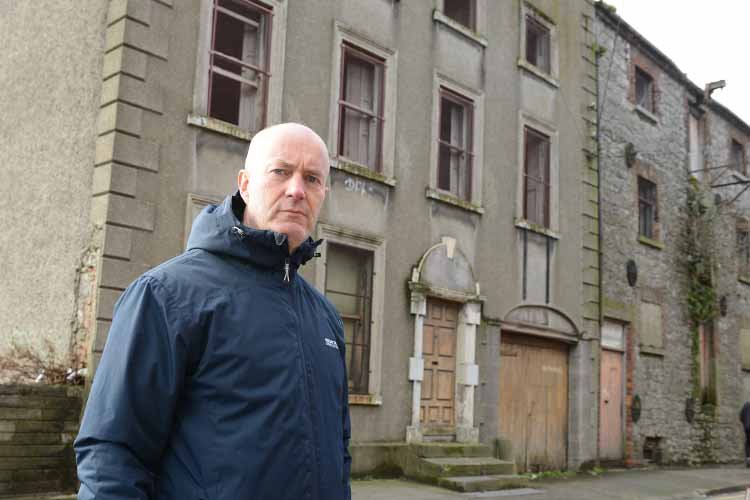Labour Councillor Pio Smith has said that if we want an end to dereliction in Drogheda then we need new robust national legislation and so far the government have failed to provide it.
“Drogheda like many towns across the state suffers from a significant number of properties and sites that are either derelict, dangerous or both” he told Drogheda Life.
“I have raised this issue on a numerous of occasions in Louth County Council and the response is that they are doing everything in their power to address the issue but the legislation governing Derelict/Dangerous Sites needs strengthening at a national level.”
The current status of derelict sites in Drogheda are as follows:
- There are 11 cases open in respect of properties in Drogheda. There is a further six properties in Ship Street and seven properties in Mill Lane where the names and addresses of the owners cannot be established.
- The Abbey Shopping Centre is in receivership and has been issued with a section 11 notice by LCC.
- There are farm buildings and a Thatch Cottage on Crushrod Avenue that are dangerous and a court case is pending.
- Property numbers 48,49,50,51,52 in Narrow West Street will be issued with Section 11 notices shortly. Properties 14 and 15 in Trinity Street have no known owner.
- Ship Street and Mill Lane have a similar problem where ownership of properties cannot be determined by the council.
- Section 8 Notices have been issued under the Derelict Sites Legislation for properties 48 to 52 inclusive on Narrow West Street. Number 52 has also been identified as a dangerous structure. Louth County Council’s legal team found that the address of the owner was out of date. It was subsequently decided to issue a Section 11 notice on this structure.
Councillor Smith says he has raised this issue at Council meetings and that he is satisfied that the Council have done significant work.
“However, if we want an end to dereliction in Drogheda then we need new robust national legislation and so far the government have failed to provide it.”





